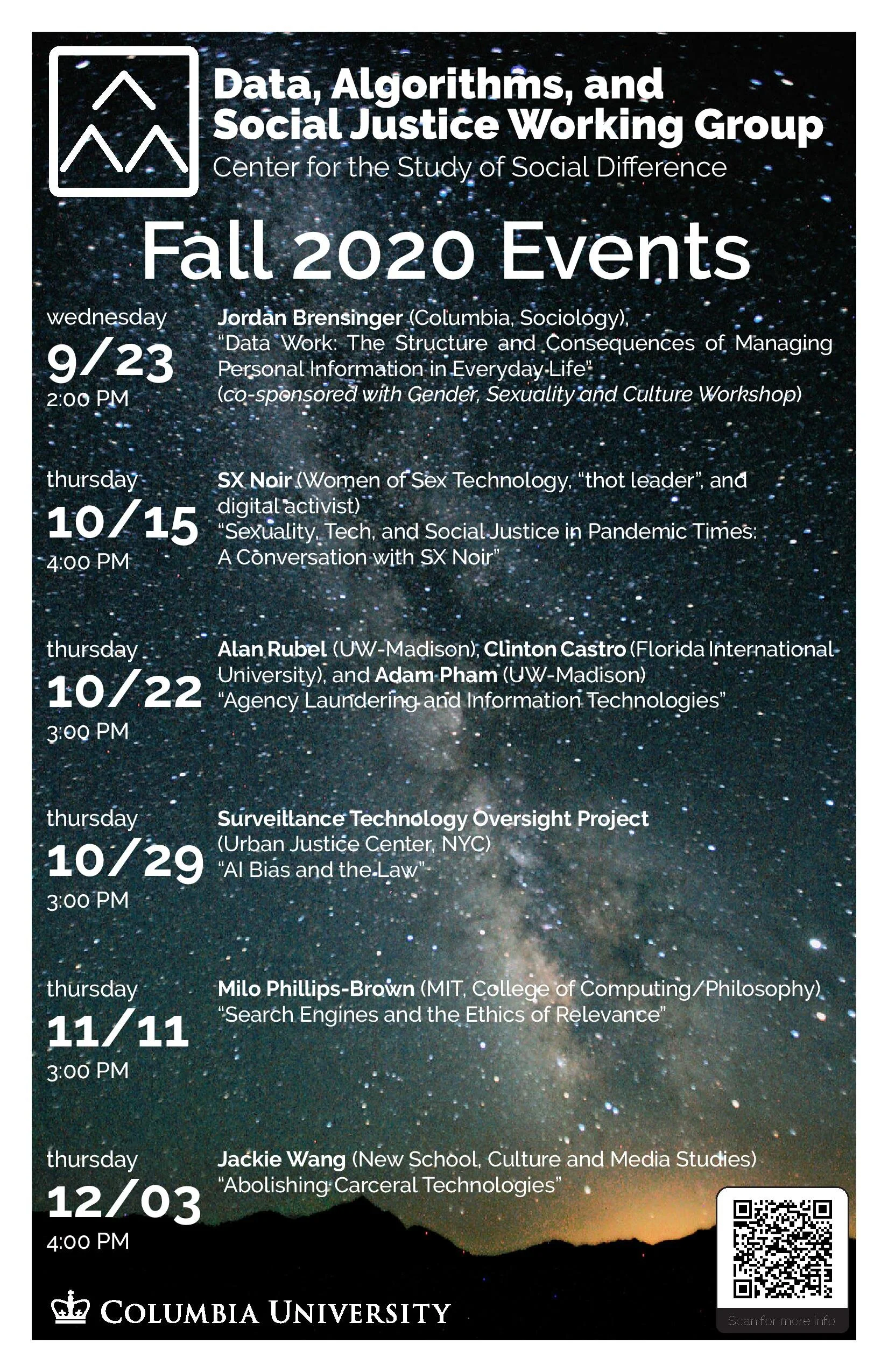Managing personal data has become a non-trivial form of unpaid labor performed by ordinary individuals as a part of everyday life. Focusing on the case of personal finance—based on a relational ethnography of identity theft resolution—Brensinger proposes four general types of data work: maintenance, whereby individuals monitor their data and guard against potential breakdown, corruption, or “illegitimate” appropriation, improvement aimed at increasing the symbolic value conveyed by their data, repair work to dispute and correct perceived inaccuracies with data, and resistance, which attempts to hinder the very production and exploitation of data. This labor has important implications for inequality, insecurity, and the legitimacy of data-related institutions. Finally, Brensinger concludes with a framework for extending the study of data work beyond personal finance to a host of institutional domains, including welfare, healthcare, education, and online reputation and social media.
Note: Pre-registration is not available for this event. To receive the Zoom link and a copy of the pre-circulated paper, please join the GSC Workshop mailing list or contact coordinators Anna Hidalgo (aph2144) and Dominic Terrel Walker (dtw2120).
This event is co-sponsored with the Department of Sociology's Gender, Sexuality, and Culture (GSC) Workshop and the Data, Algorithms and Social Justice working group.

